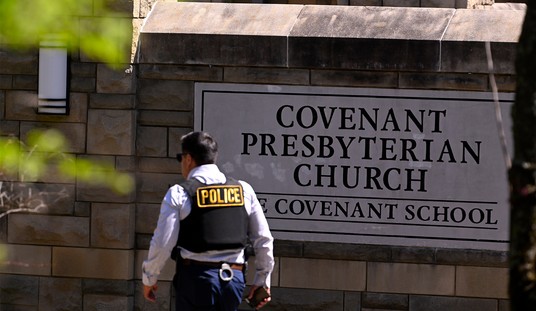When Columbia J School dean Steve Coll finishes his “external investigation” of Rolling Stone magazine’s disastrous U Va “gang rape” story, the magazine will release Coll’s findings to the public. Now that’s suspense!
The New York Times reports:
Mr. Coll said when the review was announced that the magazine had allowed him access to its staff and materials. The report will focus, he said, “on the editorial process,” but he added that it would also “have the freedom to move in any direction along the way that we believe would be germane and of public interest.”
You've got to love "germane and of public interest!" No doubt that’s an invitation to put whatever negligence he finds into a bigger—and more sympathetic—context.
Still, whatever they’re paying Mr. Coll, I can tell them how it happened for free. Since most journalism nowadays consists of ramming politically correct ideas down our throats, how could any journalist or magazine resist a story about randy male sociopaths at a venerable southern university? The “editorial process” for such a desirable story didn’t involve even minimal reporting standards. The story of a gory rape at a frat house so fit the biases of Erdely and her editors that they were not skeptical in the least about some of the more outlandish details.
Recommended
Don’t get me wrong. I like journalism porn as much as the next former reporter, and I’m a connoisseur of J scandals from Janet Cook, who had to give back a 1981 Pulitzer Prize for fabricating “Jimmy,” a child heroin addict in the inner city, to Sabrina Rubin Erdely, the author of the 9,000-word Rolling Stone story, who went looking for a rape story, stopping at various colleges that she said didn’t “feel quite right” before settling upon the University of Virginia, which did feel right to Ms. Erdely in part because she said it lacked a “radical feminist culture seeking to upend the patriarchy.”
Coll is a two-time Pulitzer Prize winner, and, while his talents may have been better employed as New Delhi bureau chief for the Washington Post, it will be mildly interesting to read whatever he turns up about Rolling Stone's "editorial process." But the whole operation—whatever its findings—is transparently a ploy on the magazine’s part to salvage its reputation. What says sorry better than an “external investigation?” Note to Rolling Stone: the time to investigate a story is before you publish it.
What I am wondering is if and how Mr. Coll, who has dealt with far more complex matters in his career than the interworkings of a dippy magazine office, will handle how the ideological mix at Rolling Stone helped allow the story to be published. He'll have to address it and the question is where he will take this important aspect of the "external investigation" and what it might say, by extension, about the state of journalism today.
The editors at Rolling Stone live, as do most journalists, in a milieu where the notion that there is a “rape culture” on U.S. college campuses is believed uncritically. If journalists cared more about the truth, they might be inspired to examine the statistics on which this idea is built.
The American Enterprise Institute’s Christina Hoff Sommers, also known as the Factual Feminist, and Mark Perry, have both debunked the most wildly used claim that one-in-five undergrads is the victim of rape or attempted rape. Hoff Sommers traced the statistic to “advocacy research,” and Perry has crunched numbers that show that the figure is wildly inaccurate. The mainstream media and campus administrators don’t need to uncritically accept Hoff Sommers and Perry’s critiques—but, in the spirit of intellectual curiosity, they should at least entertain and evaluate them on their own.
But it is politically incorrect to question any aspect of those statistics and claims about the peril women face on campus. Thus the “Jackie” fiasco bloomed.
In fact, political correctness is often at the heart of editors’ gullibility for the wares of fabricators. In an earlier scandal, Stephen Glass was believed by his editors at The New Republic because his depictions of evil conservatives, ever how bizarre, matched the editors’ prejudices. Like the U Va gang rape story, the Duke Lacrosse team scandal (which also turned out to be false, but not before the accused had suffered from blistering publicity) played into the media’s bias about preppy young men.
Sadly, for too many journalists today and their publishers, speaking the truth nowadays is less important than bombarding readers with the idea that we live in a sexist, racist society that hates gays. The media has always been liberal, but now it seems that rather than dig for facts, they mere dig for anything that can support their world view.
Coll is charged with investigating only one scandal—the Rolling Stone fiasco. But if he does his job the report might be a spotlight into how prejudice appears to have ruined Rolling Stone and by extension is destroying the media’s ability to report. If he doesn’t address these matters, the report will be mere gossip, which would be enjoyable, but not quite enough.


